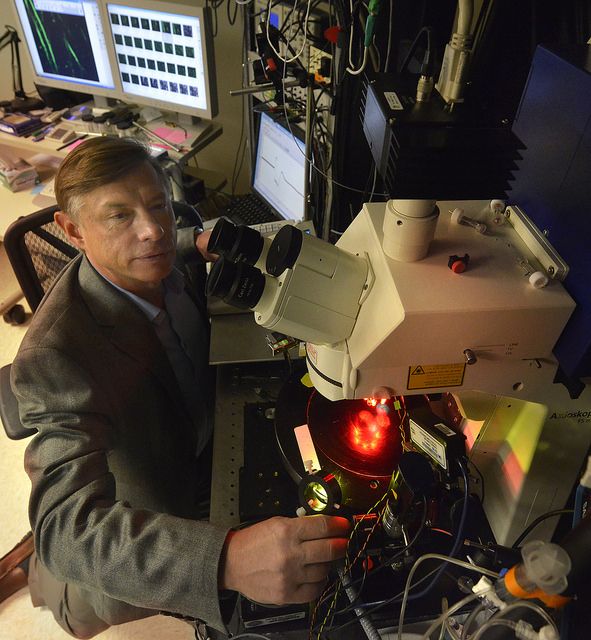Cell powerhouses are typically long and lean, but with brain injury such as stroke or trauma, they can quickly become bloated and dysfunctional, say scientists who documented the phenomena in real time for the first time in a living brain.
The scientists also found that without giving these mitochondria anything but time, they often resume their usual healthy shape once blood and oxygen were restored to mild or moderately damaged tissue, said Dr. Sergei Kirov, neuroscientist in the Department of Neurosurgery at the Medical College of Georgia at Augusta University.
“We believe this is good evidence that mitochondria can recover their normal form following brief periods of ischemia from stroke or trauma and that drugs that enhance their recovery may improve overall recovery from these sorts of brain injuries,” Kirov said.
